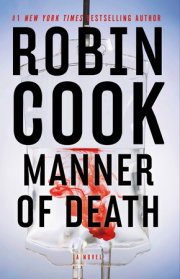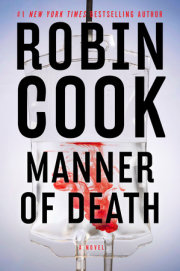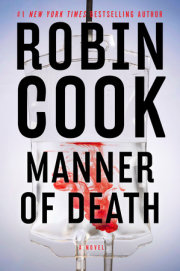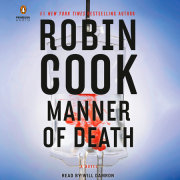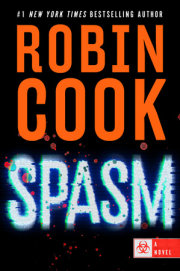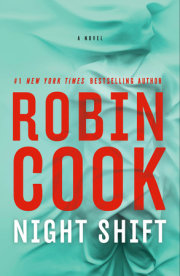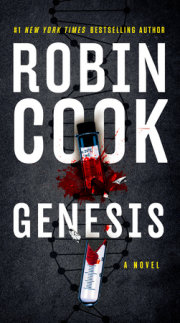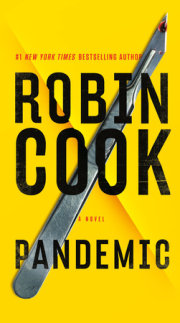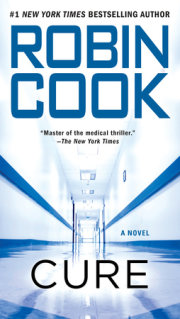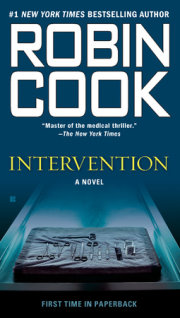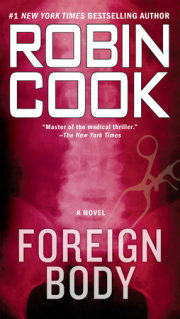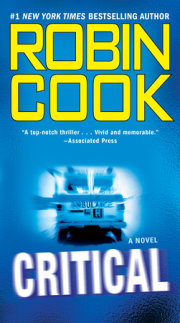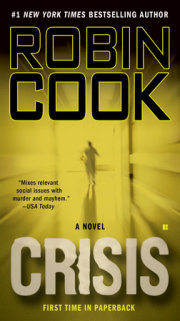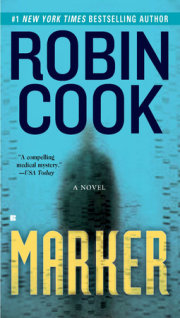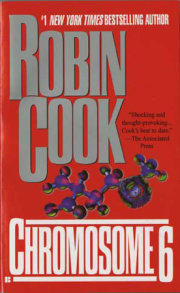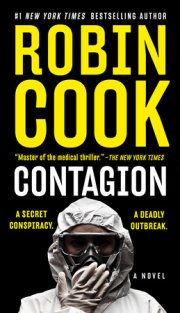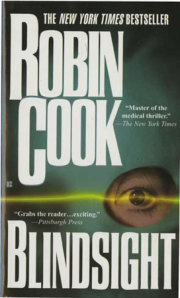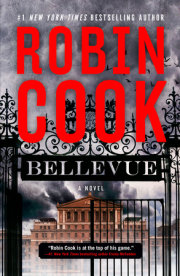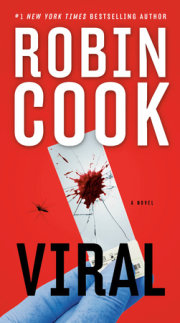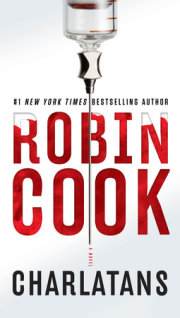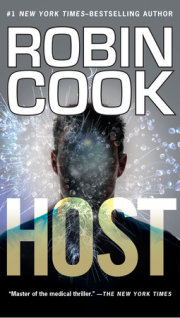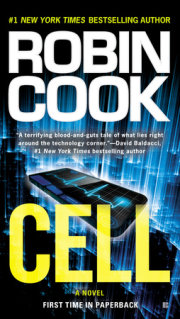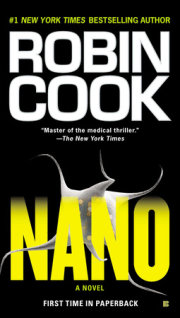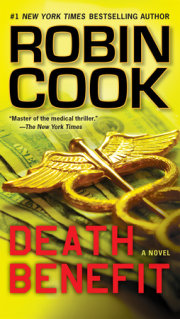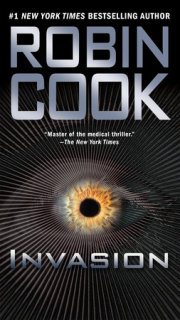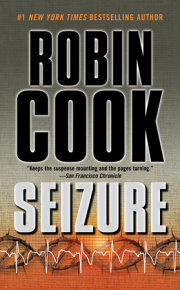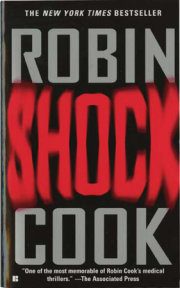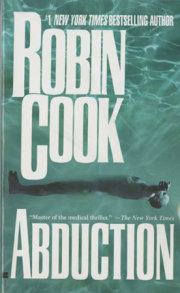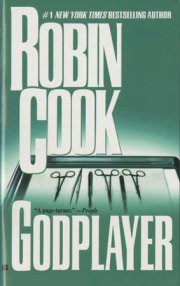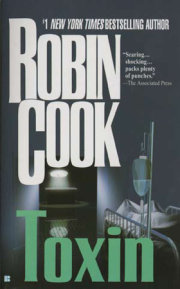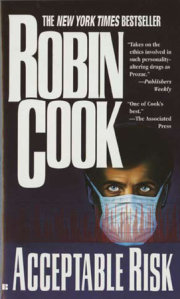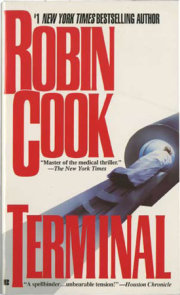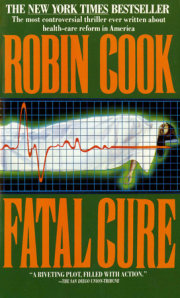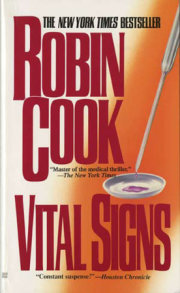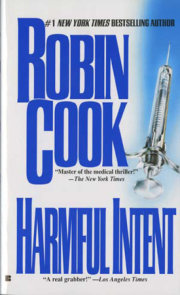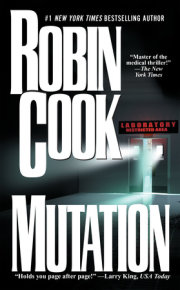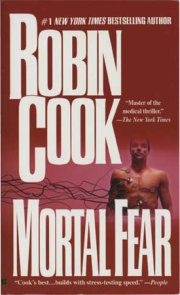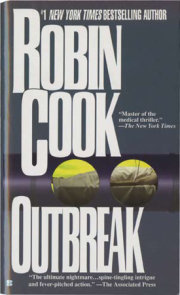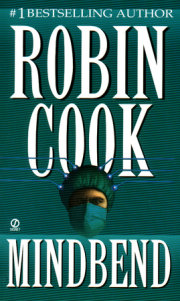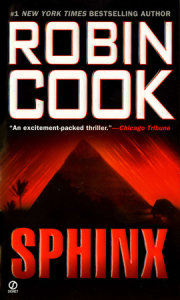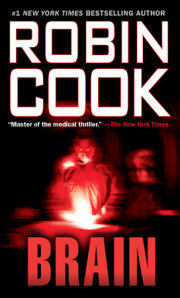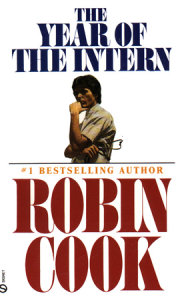CHAPTER 1
Thursday, December 7, 5:45 am
Laurie Montgomery woke up with a start at the sound of her smartphone's alarm. It was the default radar sound and wasn't terribly loud, but as if in a panic, she snatched the phone up from the bedside table to turn it off as if her life depended on it. Ever since she was a teenager, wake-up alarms had triggered a kind of fight-or-flight reaction that she'd never been able to control. Back then she'd been fearful that she'd be late to school and suffer the consequences even though she'd never been tardy. Eventually, when she had developed more insight into herself, she had an inkling the habit stemmed from conditioned fear of authority figures like the school principal and a concern of evoking their ire, which she attributed to her authoritarian and emotionally distant cardiac surgeon father.
After turning off the blasted alarm, she allowed herself to sink back under the covers for a few moments to calm down and prepare herself for the busy day ahead. She also glanced over at Jack to give him the first of several anticipated nudges. The result was the second shock of the young day: He was not there!
Sitting back up again in the early-morning darkness with just a hint of the coming dawn seeping through the two windows that overlooked 106th Street in Manhattan's Upper West Side, she strained her ears to pick up any unusual sounds in the morning stillness. As a mother her first thought was always about her children, Jack Jr.-JJ-who was thirteen, and Emma, seven, wondering if one of them had awakened and aroused Jack. The other possibility was that something was amiss with Dorothy, her mother, who was still living with them following the death of Laurie's father. With a bit of relief, she quickly became aware of the distant but reassuring sound of the shower. Obviously, Jack had just gotten up without disturbing her and was already showering.
Allowing herself to sink back once again into the warmth of the bed, Laurie vaguely wondered what had awakened Jack. Since his scary bike incident a year ago when he'd been targeted by a murderous driver, necessitating a lengthy recovery from the hip and fibula fractures of his right leg, she'd been the one to wake him in the morning rather than vice versa, despite her always having had trouble waking up in the morning. The reason was simple: She was a night person who liked to unwind by reading in bed-usually longer than she should-before turning out the light. Back in the good old days of college, medical school, and even after becoming a medical examiner, she'd usually read nineteenth-century British novels. But once she'd agreed to take on the role of chief medical examiner of the City of New York, all that changed.
Now Laurie's nighttime, in-bed reading was all work-related, as she felt there was always some additional details she desperately needed to review despite her having invariably spent ten and occasionally twelve busy hours in her office. When she'd accepted the chief's position five years ago, she'd had no idea it was going to require such a commitment of time and attention, and it had been a rude awakening. Now, when she thought about it, she was the first one to admit that she should have guessed. After all, she knew that the NYC Office of the Chief Medical Examiner, or OCME, had to oversee some seventy thousand deaths per year and do it twenty-four hours, seven days a week, 365 days a year. She also knew that to accomplish this Herculean task required more than six hundred dedicated city employees, including nearly forty board-certified medical examiners, an equivalent number of medical legal investigators, and a budget of more than seventy-five million dollars. Being the chief medical examiner of the City of New York, the largest such institution in the world, was the opposite of a sinecure.
When Jack had first come home from the hospital after his accident and resultant surgery, he'd been bedridden for almost a week, which meant Laurie had to use an alarm to wake up in the morning, as he was sleeping later than usual. Then, a month later, when he insisted on returning to work even though he wasn't all that mobile, she had finally agreed to accept a perk her position as chief provided, namely work-related transportation. But being painfully cognizant of budgetary pressures, Laurie chose not to requisition a new vehicle nor create a new job as her driver but rather to rely on the existing OCME Transport Department personnel and equipment to ferry her and Jack to and from the morgue. The only problem was that the team's change from the night shift to the morning shift occurred at 7:00, which meant that she and Jack had to be picked up well before the night-shift drivers' shift ended, meaning at 6:30, or 6:40 the latest. Since it took her a bit longer than him to get ready, she had to wake herself. Prior to Jack's incident, he'd get up way before Laurie and wake her before he left for work on his bike. Such had been their morning modus operandi for more than ten years.
With a sigh and the realization she couldn't delay any longer, Laurie reluctantly tossed back the covers, stood up, wiggled her toes into her slippers, and donned her robe. Thus prepared, she headed into the bathroom. The warm humidity was welcome. As she approached her sink-the bathroom had two, side by side-Jack was turning off the shower. He then stepped out of the spacious stall. The healed surgical incisions on his hip and calf were bright red from the hot water.
"Top of the morning to you," he said cheerfully, imitating a heavy, cultured English accent as he pulled his towel from the heated rack.
"Good morning yourself," she said as she looked at her image in the mirror to survey what she called the damage after a night's sleep. "What are you so chipper about?"
"Today's the day!" Jack exclaimed enthusiastically, covering his head with the towel to vigorously dry his hair. "I'm psyched!"
"What on earth are you talking about?" Laurie questioned. "What's so special about today?" Jack's usual morning levity never ceased to amaze her, yet his attitude on this particular morning seemed exceptionally effervescent.
"Today is the day I'm finally getting that new Trek bike that I had to order four freaking months ago," Jack said as he hung up his towel. He glanced in the mirror, and with a couple of simple pats nudged his Caesar hairstyle into position. He then headed for the door leading into what they called their changing room, which connected to the bedroom and the hallway. "I still can't believe it's taken so long to get the damn thing," he said over his shoulder before disappearing from view. Raising his voice to be heard, he added: "If I had had any inkling about how long it was going to take thanks to the pandemic-induced supply chain issues, I would have ordered the damn thing the moment I got out of the hospital."
"Good lord," Laurie managed softly. She continued to stare at her image in the mirror. She'd forgotten about the bike and had secretly hoped Jack had as well. She'd never liked that biking was his preferred mode of transportation in the city, and after his accident, she'd hoped that he'd gotten the message and finally come to share her position. Even though biking was becoming dramatically more popular with all the additional bike rental stations sprinkled about the city and all the new bike lanes, she still thought biking in NYC was only for people with a death wish. The OCME regularly saw thirty to forty bike deaths per year, and it was on the upswing, especially because people on the rental bikes rarely used helmets and electric bikes were available that went far too fast.
She leaned on the edge of the sink, recognizing she didn't want to get into a heated discussion of why she thought that, as a father and husband, Jack's biking and the risks involved was irresponsible, even selfish on his part. Laurie long ago had accepted she wasn't going to win the old argument, since his biking and even his intense pickup basketball on the neighborhood's outdoor court served a lot more than mere transportation or exercise for him. Both were a way for him to deal with his demons associated with the loss of his first family, which he still blamed on himself. From her perspective, it wasn't all bad. The suppressed anxiety involved was also responsible for the intensity he directed to being a medical examiner. At the OCME, he was by far the most productive of all the MEs, always looking for a forensic challenge to occupy his mind.
Laurie sighed. It was an ongoing battle, so to avoid conflict, she just changed the subject. "I'm looking forward to the day as well," she called out.
"Really?" Jack questioned with interest. He reappeared at the door to the changing room in the process of pulling on his undershirt. "What's up for you today?"
"It's Thursday," she said, trying to come up with something believable. A year ago she had instituted the rule that every Thursday she would do an autopsy with one of the forensic fellows who were training at the OCME to become eligible for board certification as a forensic pathologist or with one of the two New York University pathology residents who spent a month in their fourth year of pathology training. As a consequent, she truly looked forward to Thursdays as her favorite day of the week.
Besides the long hours and the frustrating politics of being the chief medical examiner, the other thing Laurie disliked about the position was that she seriously missed being a medical examiner and the challenge of doing the autopsies to determine the cause and manner of death. For her the field was a true calling to speak for the dead. Although she did make what she called chief rounds every morning, meaning she'd go down to the autopsy room and briefly go from table to table to listen to each case being presented and offer suggestions and advice based on her extensive knowledge and experience in the field, it wasn't the same as being personally involved in a case.
"Oh, right!" Jack called out even though he was again out of sight. "Are you doing an autopsy this morning?"
"Absolutely!" Laurie yelled. "I wouldn't miss it for the world. It's what keeps me sane."
"Who are you doing it with today?" Jack yelled back.
"Interesting that you should ask. I'm doing it with one of the new pathology residents who started on Friday. His name is Ryan Sullivan. Have you met him?"
Jack reappeared in the bathroom doorway. He was now buttoning one of his chambray shirts, which, along with his corduroy jacket, was his signature attire. "No, I haven't formally met him, but I've seen him and his fellow resident in the autopsy room. I haven't worked with either or spoken with them yet." Jack wasn't completely up to speed with the number of autopsies he normally did as he still found standing for long periods at the autopsy table bothersome for his hip, despite his being back to all other activities, including half-court basketball. Dr. Chet McGovern, who was responsible for the residents as the director of education, had avoided including either of the new residents on Jack's cases for fear doing so would extend how long the case took.
"Have you heard anything from any of the other MEs who have worked with him?"
Jack shook his head. "Not a word. Why do you ask?"
"Because Chet made it a point to ask me to work with him today. According to Chet, Ryan has a bad attitude. He's not a fan of forensic pathology and is resentful of having to spend a month here. As a result, he's been shirking some of his assigned autopsies, particularly in the afternoons when he sneaks back to the Hassenfeld Children's Hospital to go over the day's pediatric pathology cases."
"Uh-oh," Jack said. "That's starting to sound like a disturbing déjà vu."
"You got that right," she agreed. Several years ago there had been a similar problem with one of the NYU pathology residents, Aria Nichols, who also evaded some of her responsibilities during her OCME rotation. Back then, Chet had asked Laurie to do a case with the woman to see if Laurie could help the situation by fostering her interest in forensics, something Laurie had accomplished to great success with at least one other woman in the past. Unfortunately, although she again succeeded with Aria, there'd been a sad and tragic outcome. Awakening the woman's interest in forensics led to a series of events that ultimately resulted in her murder and Jack's having to sorrowfully autopsy the youthful resident. The case Laurie did with Aria was a suspected overdose that Aria ended up proving was a homicide, and as Aria closed in on discovering the perpetrator, he killed her.
"Don't tell me this Ryan Sullivan is another Aria Nichols," Jack said with a roll of his eyes.
"That fear occurred to me, too," Laurie said. "But without me even raising the issue, Chet put my mind to rest straight out by saying Ryan doesn't share Nichols's in-your-face antisocial aggressiveness. In fact, it sounds like Ryan is quite the contrary. Chet described him as passive-aggressive. On the plus side, he's reportedly just as smart as Ms. Nichols was. To prove it, according to Chet, he's already been offered a pediatric pathology fellowship at NYU. That's obviously a big feather in his cap, so he otherwise must be an exceptional pathology resident."
"Good grief! Having a second troublesome resident calls out that the OCME should be an elective, rather than a requirement for NYU anatomical pathology residency. Since that's not going to happen, it seems to me that we should at least be warned of a resident's negative mindset, so we can be prepared."
"I couldn't agree more," Laurie said. "That's an interesting suggestion. I've wanted an excuse to go over to the NYU Pathology Department to meet the new chief, and this could be it. Maybe early this afternoon I can find the time. If nothing else, it would be an opportunity for me to let the department know that after the Aria Nichols tragedy, we've encouraged our MEs to give the NYU residents more of a sense of participation, particularly after our general counsel put the kibosh on our giving them more actual responsibility."
"Uh-oh!" Jack voiced as he buckled his watch on his wrist and glanced at its dial. "You'd better get a move on and jump in the shower. It's already after six."
"Yikes!" Laurie said. In response she quickly peeled off her robe and kicked free of her slippers. Stepping into the shower she yelled, "Since you’re already dressed, how about making us some coffee."
"You got it," Jack said.
CHAPTER 2
Thursday, December 7, 7:00am
The shrill sound of crickets coming from Isabella Lopez’s phone jolted her awake. After turning off the alarm the first thing she became aware of was that her mouth was bone dry. Luckily there was a nearly full glass of water on the bedside table. The second thing she noticed was a mild headache undoubtedly from having had too much to drink the night before. As per usual she vowed to be more careful in the future even though she knew that the next time she was out on the town she’d most likely live in the moment, which was more her style.
Isabella was a highly motivated, career oriented, twenty-eight-year-old, second-generation Cuban from Miami, Florida, who’d gone to the University of Florida as a graphic design major. To her credit and lots of hard work, she’d managed to get a dream job in advertising in New York City and was having the time of her life in the Big Apple.
Turning around she looked over at Ryan Sullivan who surprisingly had not been bothered by the alarm. He was still fast asleep lying on his back with his hands folded over his chest and breathing deeply. They were in his apartment in the Kips Bay neighborhood on East 25th Street. They’d only known each other for a bit over two months after having met online, but things were going well as this was the third night they’d spent together, and he’d generously given her a key to his apartment, so she could on occasion use his terrific Razer computer, which had a graphics card that was far better than her Mac’s. Looking at him sleeping, she had to admit that he was as attractive in person as he had been in his photos: porcelain skin, dark hair, high cheek bones, a killer smile, and most important of all, an up-turned nose that made her jealous. It was the kind of nose she wished she had since she was a teenager.
What had turned out the most surprising for Isabella about Ryan was that he truly was a medical doctor. When he’d first offered that information online, Isabella had not given it much credence. In her experience, peoples’ online personas and the real individual were all too often at odds. Such discrepancies never bothered her because her online banter with men was akin to a kind of game, and she rarely had any inclination to meet them in person, so she didn’t care. Catching men in their online deceptions was what made the interactions fun, a challenge, and worth the time for Isabella to sift through hundreds of people on her favorite dating apps. With Ryan, it had been different since he’d been entirely consistent with his details from day one despite Isabella trying to uncover minor inconsistencies in his story.
Copyright © 2023 by Robin Cook. All rights reserved. No part of this excerpt may be reproduced or reprinted without permission in writing from the publisher.



